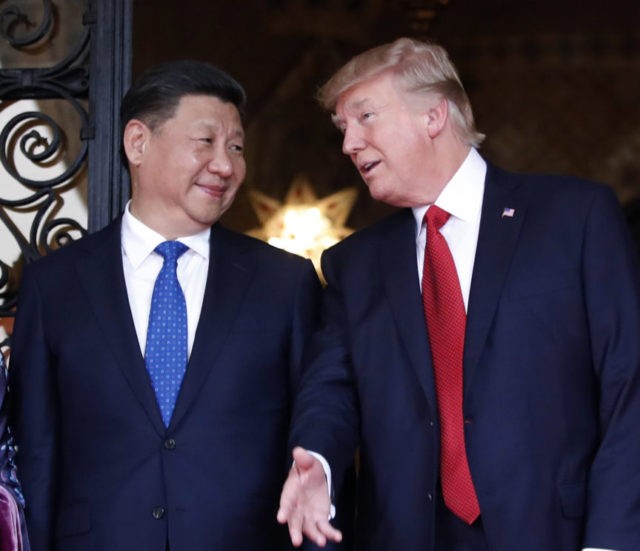WASHINGTON – China needs to do more to open its markets to American companies, as the United States has with Chinese companies, two American experts on China said Monday.
“The world has opened more to China in economic trade terms than China’s opened to Americans,” said David Lampton, professor of China studies at the Johns Hopkins University Paul H. Nitze School of Advanced International Studies (SAIS).
He said the U.S. economy is open to Chinese investment, but China has “selective barriers” when it comes to U.S. companies’ access in China.
“Particularly in the trade area and access for American companies in what China considers pillar industries, we are very concerned by what we see is an industrial policy and selective barriers against areas we’re most worried about,” he said.
“And if we’re going to improve the relationship and manage volatility and do all these things, there has to be restored a basic sense of fairness in the relationship,” he added.
Amy Celico, principal at the Albright Stonebridge Group, agreed, saying, “The ability of American companies to compete in China is increasingly limited.”
Lampton and Celico spoke on a panel about current U.S.-China relations hosted by SAIS ahead of President Trump’s meeting with Chinese President Xi Jinping in Beijing next month.
It will be Trump’s first trip to China as president, and the second major meeting between the two presidents, after the Mar-a-Lago summit in April. Lampton and Celico said they expected trade and North Korea to be the two areas of focus.
They noted that, with nationalism rising within both countries, U.S.-China relations were getting more contentious on the trade front. Lampton recommended the two sides sit down and discuss areas of “non-reciprocity.”
“We very much ought to build … a more equitable relationship,” he said. “America needs to do a lot of things, but we need some cooperation from China.”
He said things under the Trump administration got off to a positive start with the U.S. and China on trade, but were disappointing in July during an strategic economic dialogue, when China simply did what it had promised to do much earlier and finally opened its markets to American beef.
“We’re getting a little bit jaded on communiques that don’t get implemented,” he said.
Lampton also said China needed to open up in non-trade areas, too. For example, he said there were “dozens, if not hundreds” of Chinese media outlets in the U.S., but it would be “inconceivable” for the U.S. to have the same presence in China.
Also, he said U.S. researchers were having problems getting visas to go to China—even those from Johns Hopkins University, which has a facility in China.
The U.S. and China need to “sit down and level the playing field,” he said.
But Celico said she was worried that a contentious relationship on the trade front was “casting a pall” on an aspect of the U.S.-Sino relationship that has been a “ballast” for decades.
She said the recently-launched U.S. investigation of the impact of Chinese steel imports on the U.S. could result in unilateral sanctions on China, which “could start a trade war.”
“We need positive areas of cooperation,” she said. “North Korea cooperation is not enough.”
Cui Liru, senior adviser and former president of the China Institutes of Contemporary International Relations, who also spoke on the panel, said the probability of war between the two countries right now was “very low.”
Cui acknowledged that China was rapidly expanding its navy and hoped to have three aircraft carriers, a move that will inevitability create friction with a U.S. that has dominated the air and sea in the region for decades.
He noted that China is set to surpass the U.S. as the world’s largest economy in 15 to 20 years, but said he was personally optimistic about the U.S.-China relationship, which he said represented an “unprecedented” situation of two major world powers at the same time.
Given the history of the U.S.-China relationship, he said, “Rationality will always prevail.”
“I believe this is something given by the history and culture of two great nations. Therefore, I am personally optimistic.” Cui said.

COMMENTS
Please let us know if you're having issues with commenting.